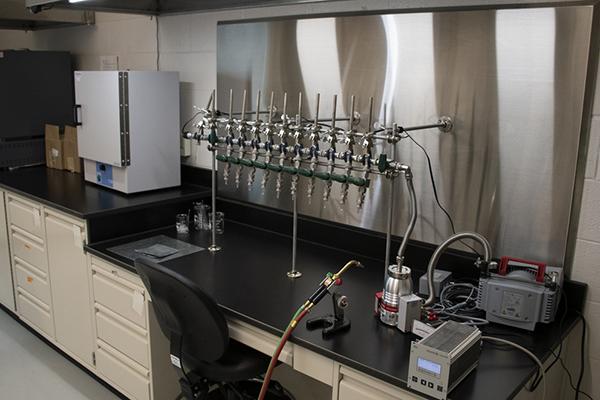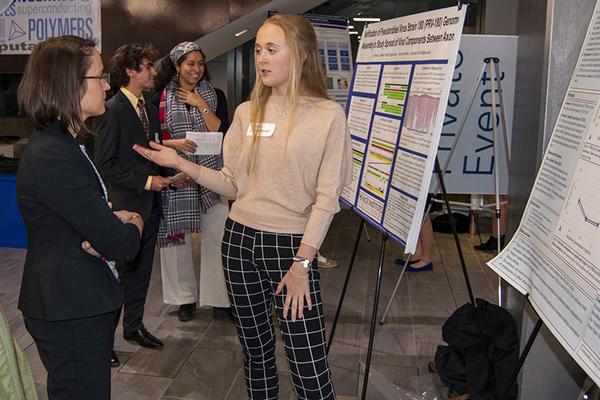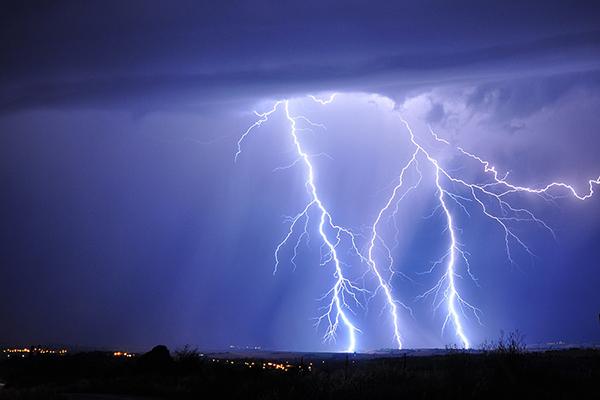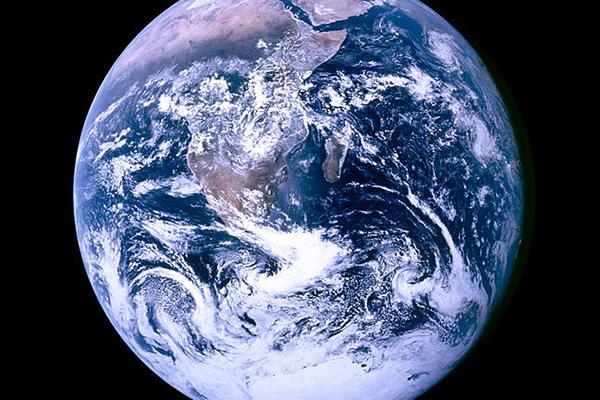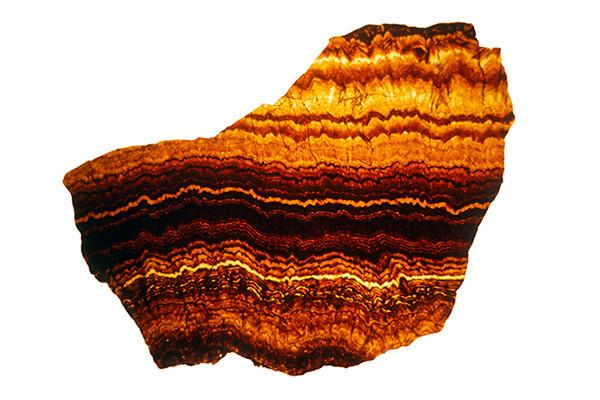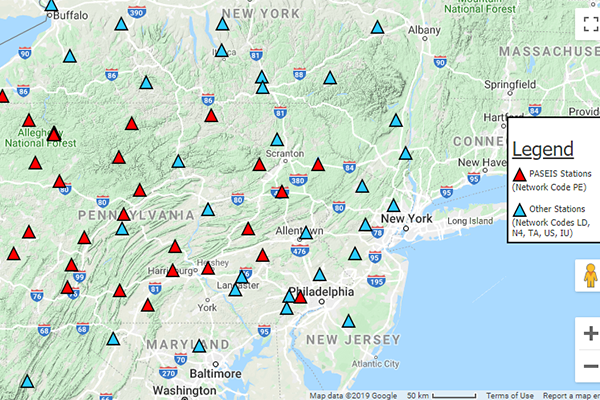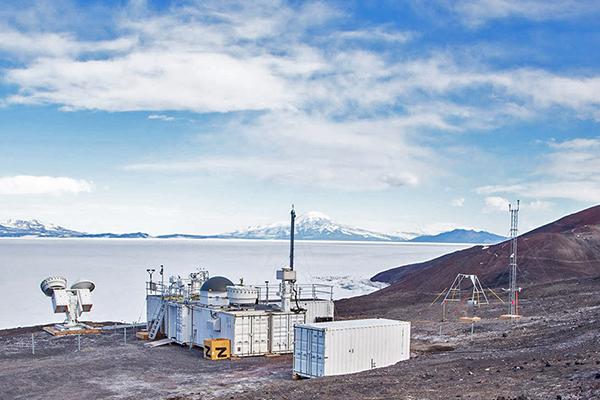Read the latest news about research conducted by investigators in the College of Earth and Mineral Sciences. Our faculty and students are continually advancing technology, creating solutions and expanding knowledge with new and innovative research.
News
A student seed grant competition is now accepting proposals for funding that will support energy and environmental laboratory research.
Students brought two semesters of work to life at the recent WISER/MURE/FURP undergraduate research symposium, where they presented their research and answered questions from other students, staff and faculty, many from outside of their fields.
Underground fiber-optic cables, like those that connect the world through phone and internet service, hold untapped potential for monitoring severe weather, according to scientists at Penn State.
Every day, more than 141 billion liters of water are used solely to flush toilets. With millions of global citizens experiencing water scarcity, what if that amount could be reduced by 50%?
Equilibrium climate sensitivity — how sensitive the Earth's climate is to changes in atmospheric carbon dioxide — may be underestimated in individual climate models, according to a team of climate scientists.
Changes in groundwater millions of years ago created alternating layers of vivid yellow and brown in the mineral sphalerite, and those variations align with movements in Earth’s orbit that impacted climate in the deep past, Penn State scientists found.
When a seismic event occurs in the commonwealth, the Pennsylvania State Seismic Network (PASEIS) is the first to know.
A team of Penn State researchers will soon have a better understanding of the deformation properties and poromechanical behavior of rock samples containing anhydrite, thanks to a $450,000 Chevron grant.
Researchers in the Penn State Department of Mechanical Engineering have been awarded more than a combined $3.3 million to support advancements in the performance and efficiency of combustion turbines and turbine-based power cycles in fossil fuel power generation.
For the first time, persistent drizzle has been recorded at temperatures well below freezing in Antarctica, according to a team of researchers.



